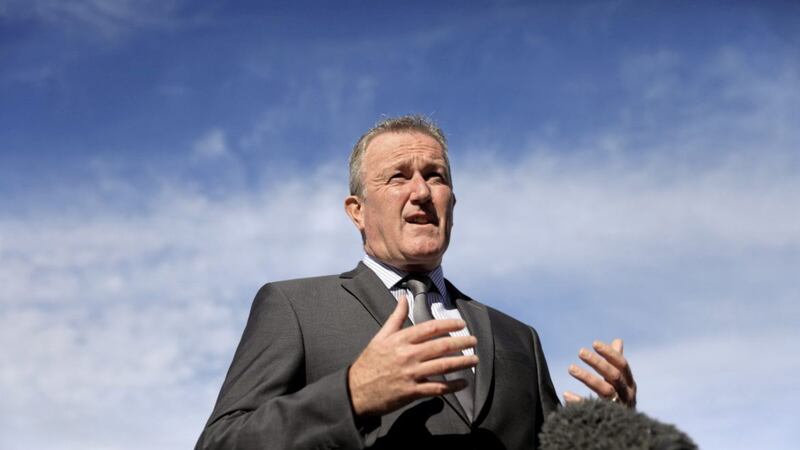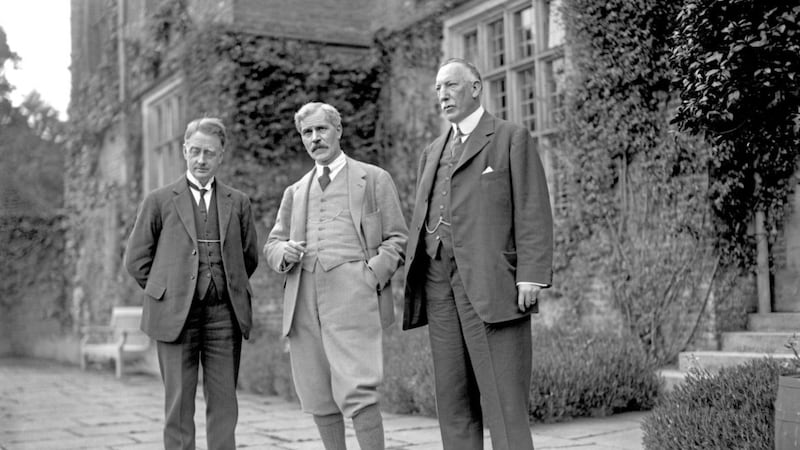Health service managers in Northern Ireland have long warned their first need is not more money but an end to Stormont’s one-year budgets, which make long-term planning and reform impossible. Time horizons have shrunk down to months, as one-year budgets leave health dependent on covering shortfalls through ‘monitoring rounds’ - the reallocation of unspent funds Stormont performs two to three times per year.
The executive is meant to create five-year budgets, lasting a whole assembly mandate. Incredibly, for reasons including collapse, crisis, incompetence and a change in the length of mandates, there have been only one-year budgets since 2014.
Sinn Féin finance minister Conor Murphy is now working on a three-year budget, aiming to pass it next February, a little close to May’s election. When experts talk of a DUP walk-out threatening the health service, wrecking this budget is what they mainly have in mind.
It is not as if the executive ever delivers planning and reform itself.
**
Boris Johnson has said the protocol argument “can’t go on forever”.
Echoing his comments, EU vice-president Maros Sefcovic said he wants it resolved “by the end of year”.
That creates a Christmas deadline, so familiar to previous Stormont crises, for the DUP to climb down off the ledge. Alas, Jeffrey Donaldson has set an October deadline to have the protocol adjusted to his satisfaction, timed to coincide with Westminster’s deadline to legislate for an Irish language act if Stormont fails to do so.
Could the DUP really pull down devolution next month if it appears a major compromise on the protocol is less than two months away?
**
After his remarks on the protocol, Johnson headed to Washington, where the argument took a contradictory turn. The White House and Congress restated that any US-UK trade deal depends on Brexit not damaging “the Good Friday Accords”. But they also confirmed there will be no trade deal, as it would take a decade to arrange and other countries are years ahead in the queue. It will be liberating for London in its dealings with Brussels to have the protocol effectively decoupled from a US trade deal. On the other hand, as Sky political editor Beth Rigby put it, the protocol now becomes “a shadow over the relationship” between Johnson and President Biden. It is bound to end up coupled to something else.
**
The protocol helped obtain some carbon dioxide for Northern Ireland, which may explain audacious question-dodging in the assembly. Sinn Féin’s Gerry Kelly asked DUP economy minister Gordon Lyons “how exposed to carbon dioxide shortages is industry here, given the soaring gas and electricity prices that are hitting consumers very hard”.
Lyons replied he had raised the matter with Sinn Féin minister for communities, Deirdre Hargey, “as her department has responsibility for fuel poverty.”
Kelly tried again, asking what Lyons was doing to secure supplies for “vital industries... including food production and animal slaughter”.
“The use of carbon dioxide in that way is not an energy-related matter”, Lyons replied, so it is “not pertinent to my department.”
Kelly sat down defeated but clearly unhappy. An hour later, he asked to make a point of order that Lyons was wrong to say these matters were outside his remit.
“I do not think that that is a point of order,” the speaker replied.
What a gas.
**
Armagh, Banbridge and Craigavon council and SDLP infrastructure minister Nichola Mallon are to fund a £60,000 feasibility study into reopening the Portadown to Armagh railway line. The last study in 2014, commissioned by Mallon’s UUP predecessor Danny Kennedy, caused jaws to drop when it came back with a cost of £100 million, or £10 million per mile to restore a route still largely clear since it was shut in 1957. Yet that is in the order of what such projects cost, making it unfeasible to serve a city of 15,000 people. It would be kinder to say so now and spend the £60,000 on a bus.
**
Among several terminological arguments to flare up over the President Higgins centenary fiasco is what unionists are meant to call the country to their immediate south. ‘Republic of Ireland’ is apparently disrespectful, despite being the legal description of the state since 1949. ‘Ireland’ is what many in the south want unionists to say, being the name of the state in English under the constitution, yet northern nationalists find that offensive. The name of the state in its official language is ‘Eire’, yet for some unexplained reason any British person saying this grossly insults the Irish, north and south. It appears there is no way to win. Perhaps that is the point.
**
Developers may want to rethink their marketing of an 800-apartment build-to-rent complex planned for Titanic Quarter. They are promising “Swiss-style living”, which they seem to believe means free wi-fi and bicycle parking.
In reality, Swiss apartment living is infamous for its strict and strictly-enforced rules. A common example would be a ‘quiet period’ from 10pm to 7am, during which residents may not run a bath, run a washing machine or even flush the toilet. Given the state of our sewers, that last rule might not be a bad idea.









